#FleaTreatment
Explore tagged Tumblr posts
Text
𝐏𝐫𝐨𝐭𝐞𝐜𝐭 𝐲𝐨𝐮𝐫 𝐟𝐞𝐚𝐭𝐡𝐞𝐫𝐞𝐝 𝐟𝐫𝐢𝐞𝐧𝐝 𝐟𝐫𝐨𝐦 𝐄𝐱𝐭𝐞𝐫𝐧𝐚𝐥 𝐏𝐚𝐫𝐚𝐬𝐢𝐭𝐞𝐬!



Learn about the most common external parasites in birds and effective prevention methods.
Keep your bird happy and healthy.
Read Full Article: https://bit.ly/4eQwjLQ
Follow us Now @budgetpetcare
#BirdHealth#BirdCare#PetBirds#ParasiticDiseases#BirdParasites#FleaTreatment#TickPrevention#Mites#BirdGrooming#BirdSafety#BirdLovers
0 notes
Text
Be sure you know what you are giving to your pets!
1 note
·
View note
Text
Effective Flea Treatment Services - Jim's Pest Control

Get rid of flea infestations with professional flea pest control services from Jim's Pest Control. Our experienced team tackles flea problems effectively, ensuring a pest-free environment in your home. With advanced techniques and safe methods, we provide comprehensive flea treatment to protect your family and pets.
1 note
·
View note
Text
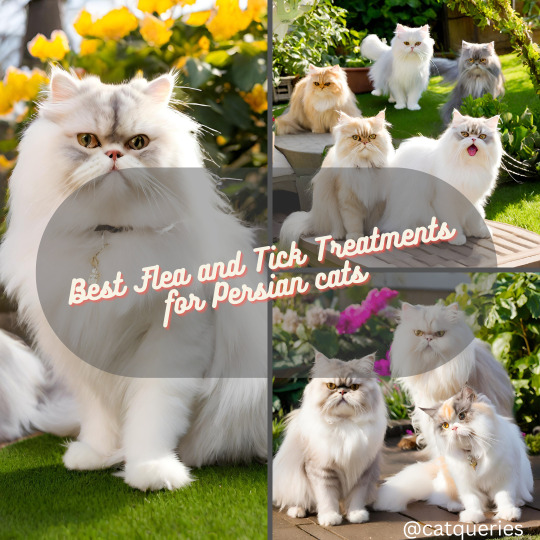
While fleas are tiny pests, they can cause more than just mild irritations to your Persian cat. They can also endanger its life. These small parasites can result in continuous itching and skin irritation as well as the transmission of severe diseases. Being a caring cat owner, you must ensure that your beloved fluffy is healthy and happy always, ensuring they get the right flea treatment.
This article will discuss the most efficient flea treatment methods. The guide is also best selected flea treatment the are suitable for Persian cats.
Read more: https://shorturl.at/noG18
0 notes
Link
🐱 Newborn kittens require special care, including protection against fleas, which can cause discomfort and health issues. 🚫 These tiny parasites can quickly infest a litter, leading to itching, anemia, and even infections. 💊 Fortunately, there are safe and effective flea treatments available specifically designed for newborn kittens.1. Understanding the Importance of Flea Treatment for Newborn KittensFlea treatment is crucial for newborn kittens as fleas can cause severe health issues. 🐱 🔍 Regular treatment prevents flea infestations, which can lead to anemia, skin infections, and even death. 🌱 Fleas can transmit parasites like tapeworms to kittens, affecting their growth and overall well-being. 💡 Early treatment is essential to prevent fleas from spreading to other pets and your home. 🛡️ Choose a safe and effective flea treatment specifically designed for kittens, avoiding adult cat products. 🧼 Gently bathe kittens with a flea shampoo, carefully following the instructions to eliminate any existing fleas. 🏠 Regularly vacuum your home, wash bedding, and treat the environment to eliminate flea eggs and larvae. 🚫 Avoid using flea collars or over-the-counter products, as they may contain harmful chemicals for newborn kittens. 🩺 If you notice any signs of fleas or suspect an infestation, consult a veterinarian for proper diagnosis and treatment.2. Common Flea Treatment Options for Newborn KittensWhen it comes to treating fleas in newborn kittens, it's important to choose safe and effective options. Here are some common flea treatment options: Topical treatments: These are applied directly to the kitten's skin and kill fleas on contact. Look for products specifically formulated for kittens. Oral medications: These are given to kittens orally and work systemically to kill fleas. Consult a veterinarian for the appropriate dosage and medication. Flea combs: Regularly combing your kitten with a flea comb can help remove fleas and their eggs. Remember to dispose of the fleas properly. Flea baths: Some mild kitten-safe shampoos can help eliminate fleas. Ensure the water temperature is comfortable for the kitten. Environmental control: Keeping the kitten's environment clean is crucial. Wash bedding, vacuum regularly, and consider using flea sprays or powders. Remember, always consult a veterinarian before starting any flea treatment on newborn kittens. 🐱✨3. Safe and Effective Flea Treatment Products for Newborn KittensWhen it comes to flea treatment for newborn kittens, it's crucial to choose safe and effective products. Here are some options to consider: 1. Flea combs: These combs have fine teeth that help remove fleas and their eggs from the kitten's fur. 2. Gentle shampoos: Look for shampoos specifically formulated for kittens, as adult products may be too harsh. 3. Topical treatments: Certain spot-on treatments are safe for newborn kittens, but always consult a vet before using. 4. Natural remedies: Some natural options, like neem oil or apple cider vinegar diluted in water, can help repel fleas. 5. Flea collars: Choose collars designed for kittens, ensuring they are safe and do not pose a choking hazard. 6. Prescription medications: In severe cases, a vet may prescribe specific flea treatments suitable for newborn kittens. Remember, always follow the instructions carefully and monitor your kitten for any adverse reactions. 😺4. Step-by-Step Guide to Administering Flea Treatment to Newborn KittensAdministering flea treatment to newborn kittens is essential for their health and well-being. Follow this step-by-step guide to ensure a flea-free environment for these adorable little furballs. 1. Age Consideration: Wait until the kittens are at least four weeks old before applying any flea treatment. Their immune systems need time to develop. 2. Choose the Right Product: Consult with a veterinarian to select a safe and effective flea treatment suitable for newborn kittens. Avoid using adult cat products, as they may be too strong. 3. Prepare the Area: Create a clean and comfortable space for the treatment. Use a soft towel or blanket to secure the kittens and prevent them from escaping during the process. 4. Read the Instructions: Carefully read and understand the instructions provided with the flea treatment product. Follow the recommended dosage and application method to ensure effectiveness and safety. 5. Apply the Treatment: Gently hold each kitten, part their fur, and apply the flea treatment directly to the skin. Massage the area to ensure proper absorption. Be cautious and avoid contact with their eyes or mouth. 6. Monitor for Reactions: Keep a close eye on the kittens for any adverse reactions after applying the flea treatment. If you notice any unusual behavior or symptoms, contact your veterinarian immediately. 7. Repeat as Directed: Follow the recommended treatment schedule provided by the veterinarian or product instructions. Regularly administer flea treatment to protect the kittens from reinfestation. 8. Clean the Environment: To prevent fleas from returning, thoroughly clean the kittens' bedding, toys, and living area. Regularly vacuum the surroundings and wash any fabric items in hot water. 9. Regular Check-ups: Schedule regular check-ups with the veterinarian to ensure the kittens' overall health and address any concerns related to flea treatment or prevention. By following these steps, you can provide newborn kittens with a flea-free start in life, ensuring their comfort and happiness. 🐱✨5. Precautions and Considerations for Flea Treatment in Newborn KittensWhen treating newborn kittens for fleas, it's crucial to take certain precautions and considerations to ensure their safety and well-being. Here are some important points to keep in mind: Consult a veterinarian: Before starting any flea treatment, seek professional advice to determine the safest and most suitable options for your newborn kittens. Avoid chemical-based treatments: Newborn kittens have delicate systems, so it's best to steer clear of harsh chemicals that may be harmful to them. Opt for natural or non-toxic alternatives instead. Frequent grooming: Regularly combing the kittens with a flea comb can help remove adult fleas and their eggs, reducing the infestation and preventing further discomfort. Keep the environment clean: Regularly clean and vacuum the areas where the kittens spend time to eliminate any fleas or eggs that may be present. Isolate infected kittens: If you have multiple kittens, separate any infected ones to prevent the fleas from spreading to the others. This will also help in monitoring their progress. Monitor for signs of anemia: Fleas can cause anemia in kittens due to blood loss. Keep an eye out for pale gums, weakness, and lethargy, and seek immediate veterinary care if these symptoms arise. Follow dosage instructions: If using flea treatment products, carefully follow the instructions provided by the manufacturer to ensure the correct dosage and application method. By taking these precautions and considerations, you can effectively treat fleas in newborn kittens while prioritizing their health and well-being. 😺🚫🦟6. The Benefits of Regular Flea Treatment for Newborn KittensRegular flea treatment for newborn kittens is crucial for their health and well-being. Here are the benefits: Prevents flea infestation, which can lead to anemia and skin infections. Protects against flea-borne diseases like tapeworms and Bartonella. Reduces the risk of allergic reactions caused by flea bites. Prevents the spread of fleas to other pets and humans in the household. Helps kittens grow and develop without the discomfort and irritation caused by fleas. Ensures a clean and hygienic environment for the kittens to thrive in. 🐱✨ Regular flea treatment should be administered as per the veterinarian's recommendation, considering the age and weight of the kittens. It is important to choose safe and effective flea treatment products specifically formulated for kittens. Remember, prevention is key! 🚫🚫7. Seeking Professional Advice for Newborn Kittens' Flea TreatmentWhen it comes to treating fleas on newborn kittens, it's crucial to seek professional advice. 🐱💼 Here are some reasons why: Newborn kittens have delicate immune systems that require specific flea treatments. Professional advice ensures the safety and effectiveness of the treatment. Experts can recommend suitable products that are gentle on the kittens' sensitive skin. Additionally, professionals can provide guidance on proper application techniques: They can show you how to safely handle and restrain the kittens during treatment. They can advise on the appropriate dosage and frequency of treatment. Experts can also educate you on preventive measures to avoid future flea infestations. Remember, seeking professional advice guarantees the best care for your newborn kittens' flea problem. 🐾👩⚕️ In conclusion, ensuring proper flea treatment for newborn kittens is crucial for their health and well-being. Regularly using safe and effective flea products, recommended by veterinarians, can prevent discomfort and potential health issues. 🐱🌟 Remember, early detection and treatment are key to managing flea infestations in newborn kittens. By maintaining a clean environment, regularly grooming and checking for fleas, and seeking professional advice, you can provide the best care for these adorable little furballs. 🛁👩⚕️ Don't let fleas dampen the joy of welcoming a new kitten into your home. With the right flea treatment and preventive measures, you can ensure a happy and healthy start for your precious feline companion. 🏠❤️ https://fleatreatment.uk/newborn-kittens-flea-treatment/?_unique_id=64a0d3ac68838
#Uncategorised#fleatreatment#fleatreatmentforkittens#kittensfleatreatment#newbornkittens#newbornkittenstreatment#aiomatic_0
0 notes
Text
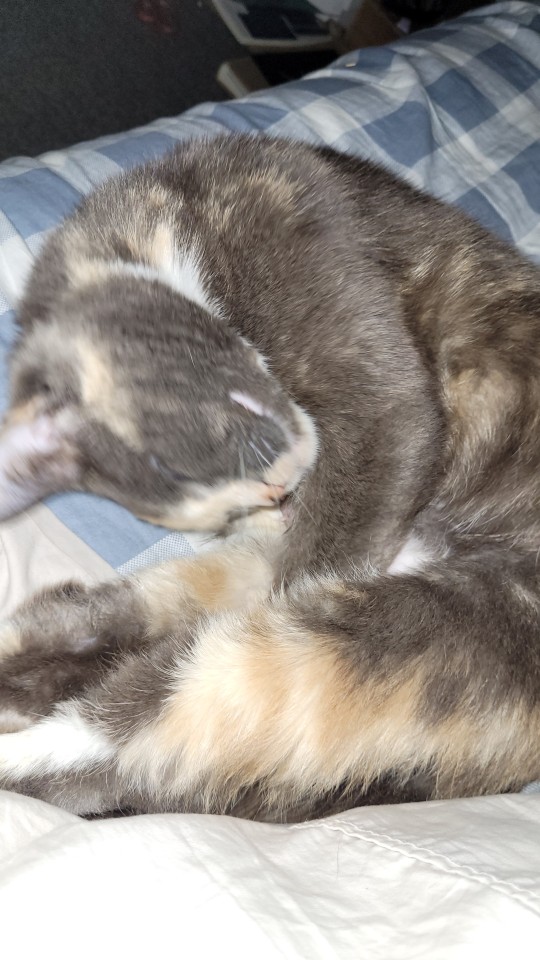
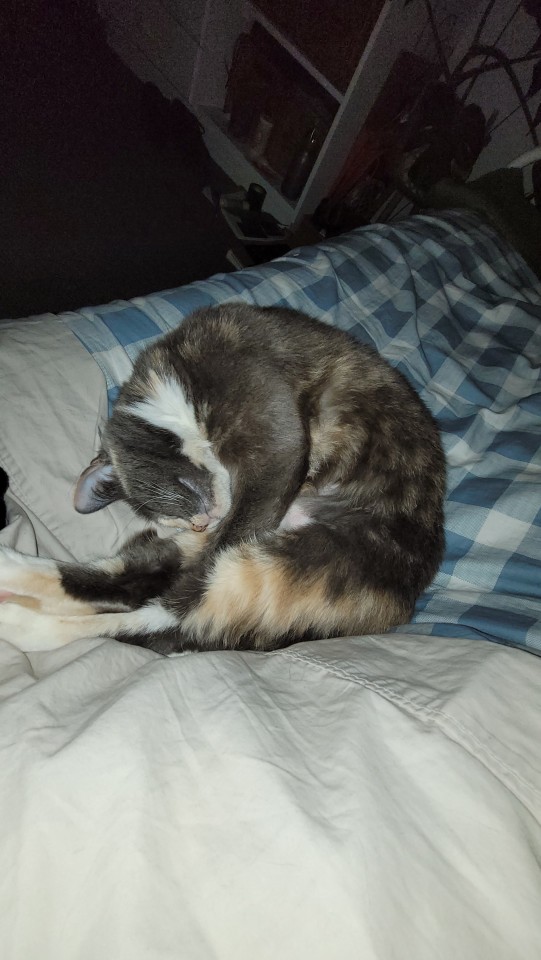
shes on me bed
1 note
·
View note
Text
Anti tick bird bath shampoo
#petlife #antiticks #antitickspray #antitickshampoo #fleatreatment #fleas #birds An excellent product specifically manufactured for Birds is highly effective to keep your birds free from any skin related damages. Pet Life anti ticks birds’ bath gives the birds supple feathers and helps them to maintain the strength and water-resistant function of the plumage. ______ Product Link http://www.petlife.co.in/shop/organic-anti-ticks-birds-bath-dry-waterless-spray/ _____ #waterlessshampoo
0 notes
Text
#petlife #antiticks #antitickspray #antitickshampoo #fleatreatment #fleas #birds An excellent product specifically manufactured for Birds is highly effective to keep your birds free from any skin related damages. Pet Life anti ticks birds’ bath gives the birds supple feathers and helps them to maintain the strength and water-resistant function of the plumage. Product Link http://www.petlife.co.in/shop/organic-anti-ticks-birds-bath-dry-waterless-spray/
0 notes
Text
Flea and tick season got your pup itching like crazy?

Don't despair! We break down the features of Frontline Plus and Vectra 3D to help you pick the perfect pest protection for your furry friend.
Head to our blog for the full comparison: https://bit.ly/3Lq2zJ0
Follow us @budgetpetcare
#FleaTreatment#DogMeds#FleaAndTickPrevention#FrontlinePlus#Vectra3d#ParasitePrevention#PetCare#budgetpetcare
0 notes
Text
Dog has fleas? Guaranteed Help here 4U!
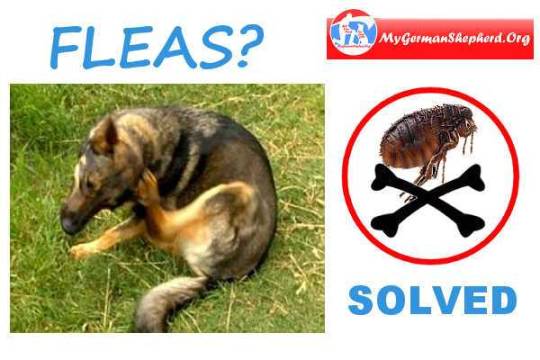
It's that time of year again! (well, depending on where you live...) FLEAS may now latch onto YOUR DOG
Though NOT if your dog is mygsdorg-healthy, ha!: fleas are attracted to dogs too weak to fight them off!
Anyway, assuming you haven't got a clue how to keep your dog healthy to mygsdorg standards, then:
How can you PREVENT FLEAS?
How can you TREAT FLEAS in case you failed to prevent them??
And How can your CURE your dog from a flea infestation that has already happened???
ALL THREE incl. suitable remedies (and NO DRUGS!) right here for you, dog lovers of all nations! :-)
**********************************
The ULTIMATE GUIDE to dog fleas
**********************************
#dogfleas #fleacontrol #fleatreatment #puppyfleas
1 note
·
View note
Text
Effective Flea Treatment: Say Goodbye to Flea Infestation
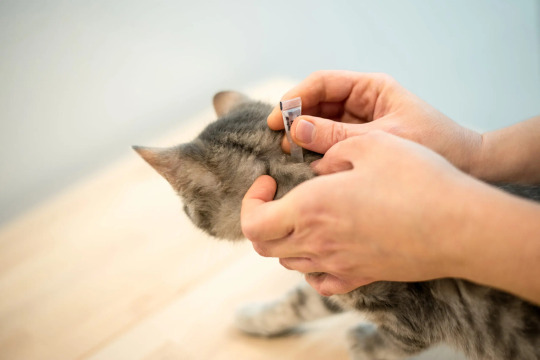
Discover expert flea pest control options for eradicating flea infestations successfully. Jim's Pest Control provides experienced flea removal services to keep your house safe and pest-free for your family and pets. Say goodbye to flea problems with our comprehensive flea treatment options.
1 note
·
View note
Photo
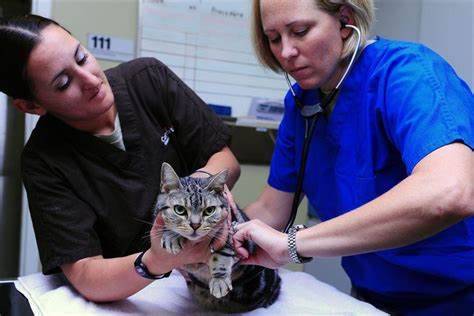
How Long After Flea Treatment Can I Pet My Cat? Here is All You Need to Know About Post-Flea Treatment Care
#cat#flea#fleatreatment#fleatreatmentoncat#howlongafterfleatreatmentcanipetmycat#HowLongAfterFleaTreatmentCanIPetMyCatHereisAllYouNeedtoKnowAboutPostFleaTreatmentCare
0 notes
Link
🐶 Pregnant dogs require special care, including protection against fleas. These tiny parasites can cause discomfort and transmit diseases to both the mother and her unborn puppies. Therefore, it is crucial to find the best flea treatment that is safe and effective for expectant canine moms. 💊 🌿 Natural flea treatments are often recommended for pregnant dogs, as they minimize the risk of harmful chemicals affecting the developing puppies. These treatments typically utilize ingredients like essential oils or herbal extracts to repel and kill fleas without posing a threat to the mother or her babies. 🍃 🔬 However, it is essential to consult with a veterinarian before using any flea treatment on a pregnant dog. They can provide expert advice on the most suitable options based on the dog's health condition and stage of pregnancy. With proper care and the right flea treatment, pregnant dogs can enjoy a comfortable and flea-free journey to motherhood. 🐾1. Understanding the Risks: Flea Infestation in Pregnant Dogs🐶 Flea infestation in pregnant dogs can pose serious risks to both the mother and her unborn puppies. 🔍 Understanding these risks is crucial for ensuring the health and well-being of the pregnant dog and her offspring. 🦟 Fleas can cause anemia in pregnant dogs, leading to weakness and potential complications during pregnancy. 🚫 Infestations can also result in skin irritations, intense itching, and discomfort for the expecting mother. 🐾 Additionally, fleas can transmit diseases to the pregnant dog, such as tapeworms or Bartonella infection. 💊 Treating flea infestations in pregnant dogs requires caution, as certain products may harm the developing puppies. 👩⚕️ Consulting with a veterinarian is essential to determine safe and effective flea control options during pregnancy. 🧪 Topical treatments containing ingredients like fipronil or selamectin may be recommended. 🌿 Natural remedies such as neem oil or diatomaceous earth can also be considered under veterinary guidance. 🧼 Regular grooming and maintaining a clean environment are key preventive measures against fleas. 🔬 Regular veterinary check-ups are crucial to monitor the pregnant dog's health and address any flea-related concerns promptly. 🐶 By understanding the risks and taking appropriate preventive measures, we can ensure a safe and comfortable pregnancy for our furry friends.2. Importance of Safe and Effective Flea Treatment during PregnancyDuring pregnancy, it is crucial to prioritize the safety and effectiveness of flea treatment. 🚫🐱 🔒 Safe flea treatment ensures the well-being of both the mother and the unborn baby. 🌿 Opt for natural and non-toxic options to avoid harmful chemicals. 💪 Effective flea treatment prevents discomfort and potential health risks for the pregnant woman. 👶 Protecting the baby from flea bites reduces the chances of allergic reactions or infections. 🩺 Consult with a veterinarian to find the most suitable and safe flea treatment for pregnant women. 💼 Remember to follow the instructions carefully and avoid self-medication during this delicate period. 3. Top Considerations for Choosing the Best Flea Treatment for Pregnant DogsWhen choosing a flea treatment for pregnant dogs, there are several important factors to consider: Effectiveness: Look for treatments that specifically target fleas and their life stages. Safety: Opt for products that are labeled safe for use during pregnancy. Ingredients: Check for natural or non-toxic ingredients to minimize potential risks. Application: Consider ease of use and the preferred method of application. Longevity: Choose treatments that provide long-lasting protection to minimize reapplication. Consult your veterinarian for recommendations and always follow the instructions provided. Remember, a happy and healthy mama dog means happy and healthy puppies! 🐶💕4. Natural Remedies: A Gentle Approach to Flea Control for Expecting CaninesDuring pregnancy, it's important to use gentle flea control methods for expecting canines. Here are some natural remedies: Regular grooming: 🛀 Brush your dog's coat daily to remove fleas and their eggs. Lemon spray: 🍋 Mix lemon juice with water and spray it on your dog's fur to repel fleas. Apple cider vinegar: 🍎 Add a teaspoon to your dog's water bowl to make their skin less appealing to fleas. Essential oils: 💧 Dilute lavender, peppermint, or cedarwood oil and apply it to your dog's collar or bedding. Diatomaceous earth: 💨 Sprinkle this powder on your dog's fur and bedding to dehydrate and kill fleas. Vacuum regularly: 🧹 Keep your home clean and vacuum frequently to remove fleas and their eggs from carpets and furniture. Remember, always consult with your veterinarian before using any natural remedies on your expecting canine.5. Vet-Recommended Flea Treatments for Pregnant Dogs: A Comprehensive GuideWhen it comes to flea treatments for pregnant dogs, it's crucial to choose options that are safe and effective. Here are some vet-recommended options: 1. Topical Treatments: These are applied directly to the dog's skin and include products like Frontline Plus and Advantage II. 2. Oral Medications: These are given as pills or chewable tablets. Examples include Comfortis and NexGard. 3. Flea Collars: These collars release chemicals that repel and kill fleas. Seresto and Scalibor are popular choices. 4. Natural Remedies: Some natural options, like neem oil and apple cider vinegar, can help repel fleas. However, consult your vet before using them. 5. Environmental Control: Keeping your dog's environment clean is crucial. Regularly vacuuming, washing bedding, and treating the yard can help prevent flea infestations. Remember, always consult your vet before starting any flea treatment during pregnancy. 🐶💊6. Safety Precautions: Dos and Don'ts of Flea Treatment for Pregnant DogsDos: Consult with your veterinarian before starting any flea treatment during pregnancy. Use flea treatments that are specifically labeled as safe for pregnant dogs. Follow the instructions provided by the manufacturer for proper application. Regularly groom your pregnant dog to remove any fleas manually. Keep your pregnant dog's living area clean and vacuum regularly to eliminate fleas. Don'ts: Do not use flea treatments that contain chemicals harmful to pregnant dogs. Avoid using flea collars or sprays that may pose a risk to the mother and her puppies. Do not use over-the-counter flea treatments without consulting your vet first. Avoid exposing your pregnant dog to heavily infested areas or other flea-infested animals. Do not use flea shampoos or dips without checking if they are safe for pregnant dogs. Remember, the safety of your pregnant dog and her puppies is of utmost importance. 🐶❤️7. Long-Term Prevention: Maintaining a Flea-Free Environment for Your Pregnant DogKeeping your pregnant dog flea-free is crucial for her health and the health of her puppies. Here are some tips to maintain a flea-free environment: Regularly vacuum your home, focusing on areas where your dog spends most of her time. Empty the vacuum bag or canister immediately. Wash your dog's bedding and blankets frequently in hot water to kill any fleas or eggs that may be present. Use a flea comb to check your dog's fur regularly. Remove any fleas or eggs you find and dispose of them properly. Keep your yard clean and free of debris, as fleas thrive in moist and shaded areas. Mow the grass regularly and remove any standing water. Consider using flea prevention products recommended by your veterinarian, such as topical treatments or oral medications. Avoid contact with other animals that may have fleas, as they can easily transfer to your pregnant dog. Consult your veterinarian for safe and effective flea prevention options specifically designed for pregnant dogs. Remember, prevention is key! By maintaining a flea-free environment, you can ensure the well-being of your pregnant dog and her precious puppies. 🐶❤️ In conclusion, choosing the best flea treatment for pregnant dogs is crucial to ensure their well-being and the health of their unborn puppies. 🐶 It is recommended to consult with a veterinarian to determine the safest and most effective option, considering the dog's stage of pregnancy and any potential risks. 🩺🔬 By prioritizing their comfort and protection, pregnant dogs can enjoy a flea-free environment and deliver healthy puppies. 🌟🐾 https://fleatreatment.uk/best-flea-treatment-for-pregnant-dogs/?_unique_id=64a0a1f86067d
#Uncategorised#bestfleatreatment#dogfleatreatment#fleatreatment#fleatreatmentforpregnantdogs#pregnantdogs#aiomatic_0
0 notes
Text
Dog Fleas and Ticks Prevention
Fleas and ticks are one of the most frustrating parasites that can infest your dog. Aside from sucking blood off your pets and bringing discomfort, they are notorious carriers of diseases. Hence, getting rid of them must be a priority. Your dogs are not the only ones at risk when fleas and ticks are present. Fleas and ticks can also pose risks to humans. But since lots of preventives are now available, you can now protect your fluffy dogs and yourself from these parasites.Find out more about these pesky parasites?

What’s the Difference Between Fleas and Ticks?
Though similar blood-suckers, these two parasites vary in some ways. So, let us give you some points so you can better understand how these two are different from each other. Also, we want you to know how to identify which parasite is infesting your dog. In that way, you’ll have a better understanding on how you can protect your pets and give them a happy life.
Fleas
This parasite is one of the most common concerns for dog owners. Fleas are wingless insects but quite high jumpers. They are about the size of a pinpoint needle with a life span of about 100 days. They feed on your dog’s blood sucking off nutrients and putting your dog at risk of infections. If you have a flea infested dog, you’ll see dirt-like grains on their skin. Those are flea feces and you must give them the proper flea treatment they need.
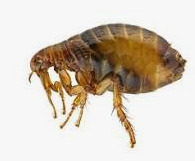
Symptoms of fleas on your dogs may include:
Dirt-like Grains
Flea eggs
Allergic dermatitis
Excessive scratching, licking or biting at skin
Hair loss
Scabs and hot spots
Pale gums
Tapeworms
For flea treatment, it’s best to ask your vet on what to do to get rid of the parasites. Aside from oral, spot-on, or other flea treatments, you must also clean their environment thoroughly. Chances are high that flea eggs are present in your dog’s area or at home.
Ticks
Unlike fleas, ticks are much easier to find on your dog’s fur. This is a type of parasite from the arachnid family. Meaning, it looks a bit like a spider with its tiny eight legs and a body that swells when filled with your dog’s precious blood. They are also notorious carriers of diseases and infections. Right after finding a spot on your dog’s skin, a tick will bury its head and start feeding. Usually, they are around the area close to the head, neck, ears and feet but can also be found in random spots.
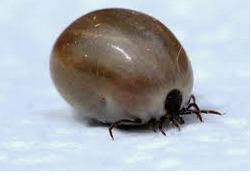
Symptoms of ticks on your dogs may include:
Blood loss
Anemia
Tick paralysis
Skin irritation or infection
Lyme Disease
To treat your pet against ticks, it’s crucial to remove it carefully. You don’t want to put your dog at greater risk of getting infections from popping them or pulling them out briskly. Any contact with the tick’s blood can potentially transmit infection to your pet or even to you. After removing adult ticks, opt for dog tick treatment.
CanadaVet offer a variety of trusted brands you can rely on to protect your dogs. The Convenient Way to Buy Affordable Dog Supplies Online
0 notes
Photo
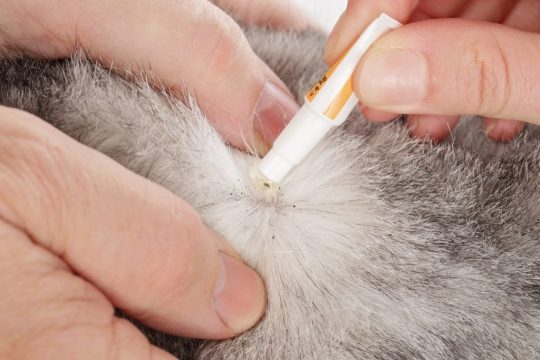
If you have a pet in your home, flea treatment is important for them regularly. Also, know how to prevent them at your home, as they transmit some diseases. To know more visit https://bit.ly/3anvisQ
0 notes